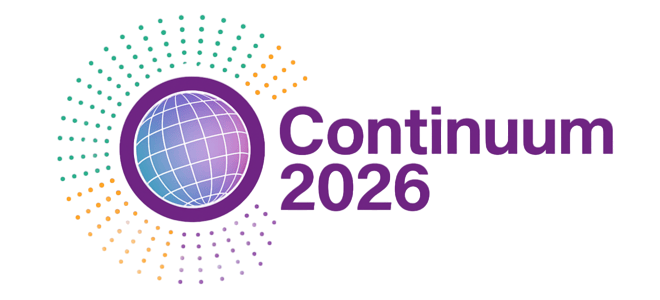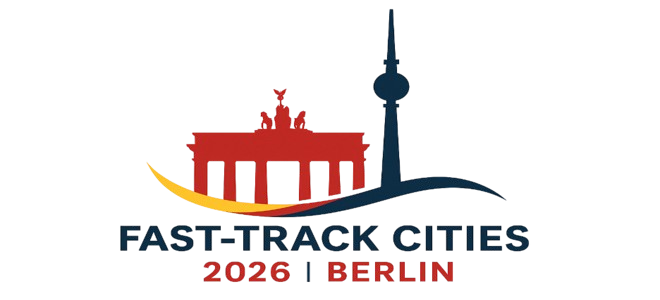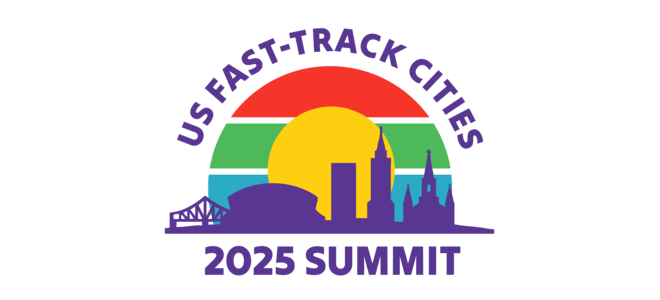Leveraging Latinx Leadership for HIV Success in Uncertain Times
IAPAC hosted an April 30, 2025, session at the NaLa 2025 conference in Las Vegas, NV, USA, focused on leveraging Latinx leadership for HIV success in uncertain times. Following is a blogpost from IAPAC President/CEO Dr. José M. Zuniga, who opened the session with framing remarks.
IAPAC is proud to have hosted a NaLa 2025 conference session, especially at a moment in which we are witnessing a calculated erosion of the very foundations that protect health and human dignity:
- public health infrastructure is underfunded,
- civil rights protections are being rolled back, and
- evidence-based policy is being replaced with ideology and fear.
This erosion hits the Latinx community especially hard – because our community is not monolithic and yet is often treated as such in policy and programs. Afro-Latinx people, LGBTQ+ Latinx individuals, migrants, and those living in rural communities face layered and compounding inequities.
Political attacks on immigrant rights, gender-affirming care, reproductive freedom, and health equity are not happening in isolation, they are part of a broader assault that undermines Latinx health, autonomy, and life. Federal and state budget cuts threaten essential services, especially HIV prevention and care programs rooted in community, cultural relevance, and trust.
We are not just fighting to preserve systems – we are called to re-imagine and rebuild responses that reflect our values, identities, and realities. This includes not only HIV services, but the full range of care and rights that enable Latinx individuals and families to thrive, including mental health, housing, and safety from violence and discrimination.
As Dr. Daniel Castellanos of the Latino Commission on AIDS noted in the session’s opening plenary, there are stark disparities in HIV outcomes among Latinx communities across the United States and Puerto Rico. These disparities are rooted not only in biomedical factors but in a complex interplay of social determinants of health – poverty, housing instability, lack of culturally and linguistically appropriate care, immigration status, systemic racism, and stigma.
Dr. Castellanos underscored the urgent need to dismantle structural barriers that perpetuate inequity, noting that Latinx individuals are disproportionately affected by delayed diagnosis, gaps in care, and lower rates of viral suppression. His call to action was clear: addressing HIV in the Latinx community requires us to address the full social context in which HIV risk and resilience exist, and to do so through Latinx-led strategies grounded in justice, trust, and community strength.
In my framing remarks opening our session, I laid out five recommendations to center and leverage Latinx leadership for HIV success in uncertain times:
- Fund Latinx-Led Organizations and Initiatives. Direct more resources to Latinx-led CBOs and clinics, ensuring we are not only the face of service delivery but also the architects of strategy, policy, and implementation.
- Build a Pipeline of Latinx Public Health Leaders. Invest in training and mentorship for emerging Latinx leaders, from community health workers to researchers and public officials, across generational and geographic lines.
- Ensure Data Disaggregation and Community Input. Demand disaggregated data that reflects the diversity within our community (e.g., national origin, language, immigration status, gender identity) and center our voices in decision-making bodies at all levels.
- Protect Intersectional Rights. Stand against all forms of legislation and regulation that target LGBTQ+, immigrant, and reproductive rights – because Latinx health is inseparable from civil rights and social justice.
- Create a National Latinx Health Equity Action Plan. Launch a multi-sectoral effort, grounded in community, to guide investments, partnerships, and accountability structures that prioritize Latinx well-being and leadership for the long-term.
The fight does not end here. Now more than ever, we must raise our voices, claim our power, and move forward together. The future of our health, our rights, and our communities depends on our collective action. Adelante (Forward) – with strength, with dignity, and without fear!
La lucha no termina aquí! Hoy más que nunca, debemos alzar nuestras voces, reclamar nuestro poder y avanzar unidos. El futuro de nuestra salud, nuestros derechos y nuestras comunidades depende de nuestra acción colectiva. ¡Adelante, con fuerza, con dignidad, y sin miedo!





